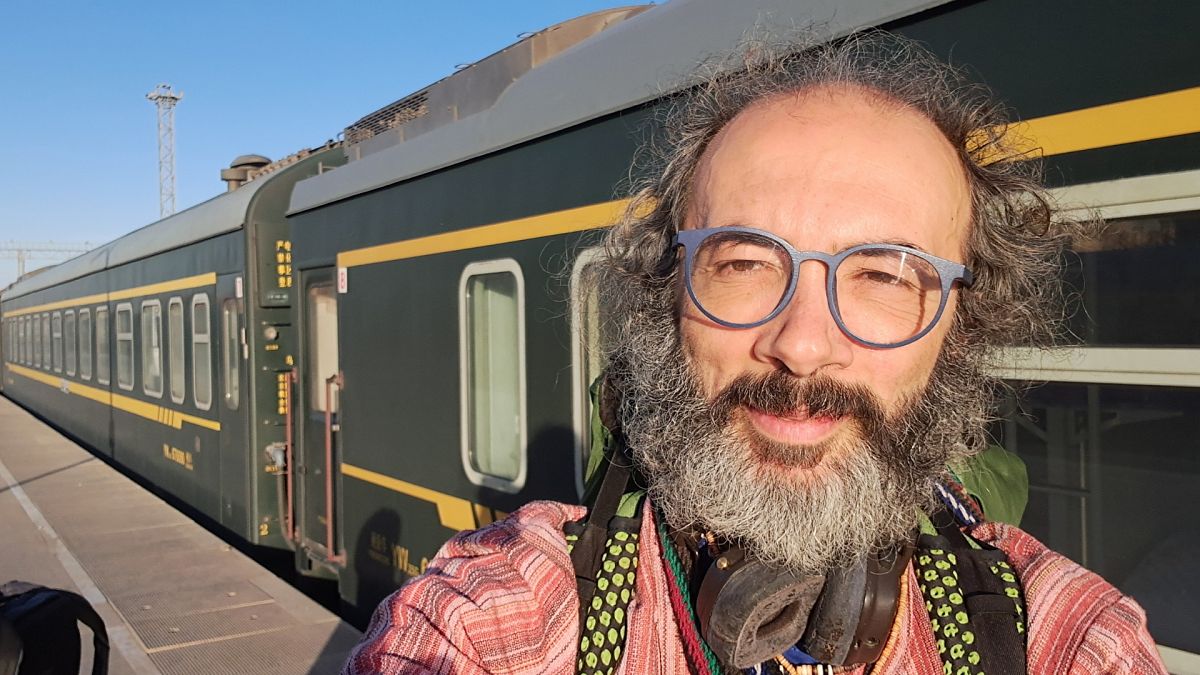The researcher hopes his case will inspire others to try flight-free travel.
A researcher fired for refusing to fly has won monetary compensation.
Italian climate researcher Dr Gianluca Grimalda and his former employer agreed on a settlement in the lawsuit filed for unfair dismissal.
The settlement was agreed during the appeals process after Dr. Grimalda’s original lawsuit was rejected last February.
Why was Dr Grimalda fired?
Dr Grimalda was told that his research contract at the Kiel Institute for the World Economy (IfW) had been terminated in October 2023 as he had failed to fly back from his fieldwork in Bougainville, Papua New Guinea.
Though the original plan for him to ‘slow travel’ for the trip had been approved by IfW, he was ordered to return by plane after he didn’t show up in Kiel by the agreed-upon date.
The journey from Europe to Papua New Guinea took a total of 35 days with the return trip scheduled to take around two months. Dr Grimalda claims his delay was due to visa deferrals, security threats, volcanic activities and other logistical issues. This is thought to be the first known case of someone being fired for refusing to take a plane to reduce greenhouse gas emissions.
The researcher calculates that slow travel reduced his greenhouse gas emissions tenfold on the 28,000km journey from Papua New Guinea to Europe.
Commenting on the settlement he said, “I feel sad and happy at the same time”.
“Sad because I lost a job I loved. Happy because the judge implicitly recognised the impossibility of dismissing an employee because of his refusal to take a plane.
“I hope that my case will inspire more employees, institutions and companies to actively support the transition from fossil fuel-based economies to decarbonised and people-centred societies.”
He says he plans to carry on with his research and travel to Papua New Guinea once again this year to continue investigating how the local population is adapting to climate change.
Dr Grimalda says €75,000 of the severance payment will be donated to environmental and climate protection and climate activism.
What does this mean for employees who want to avoid flying?
Jörn A. Broschat, LL.M., Fachanwalt für Arbeitsrecht, who defended Dr Grimalda in the lawsuit, says he is pleased with the outcome and “that the flawed decision of the first instance could be revised and that ultimately there was no reason for dismissal.”
But the legal situation still remains uncertain for employees who prefer climate-neutral travel.
“This case highlights the growing intersection between labour law and climate-conscious practices. It represents a milestone in the emerging discussion about the rights of employees to stand up for their climate principles as part of their professional obligations,” he says.
Broschat adds that it’s time for lawmakers and collective bargaining groups, such as unions, to take these beliefs into account and enshrine them in labour rights.
“This is just the beginning of undoubtedly numerous labour law decisions that will address the complex interplay between climate change and the interests of employees and employers.”

